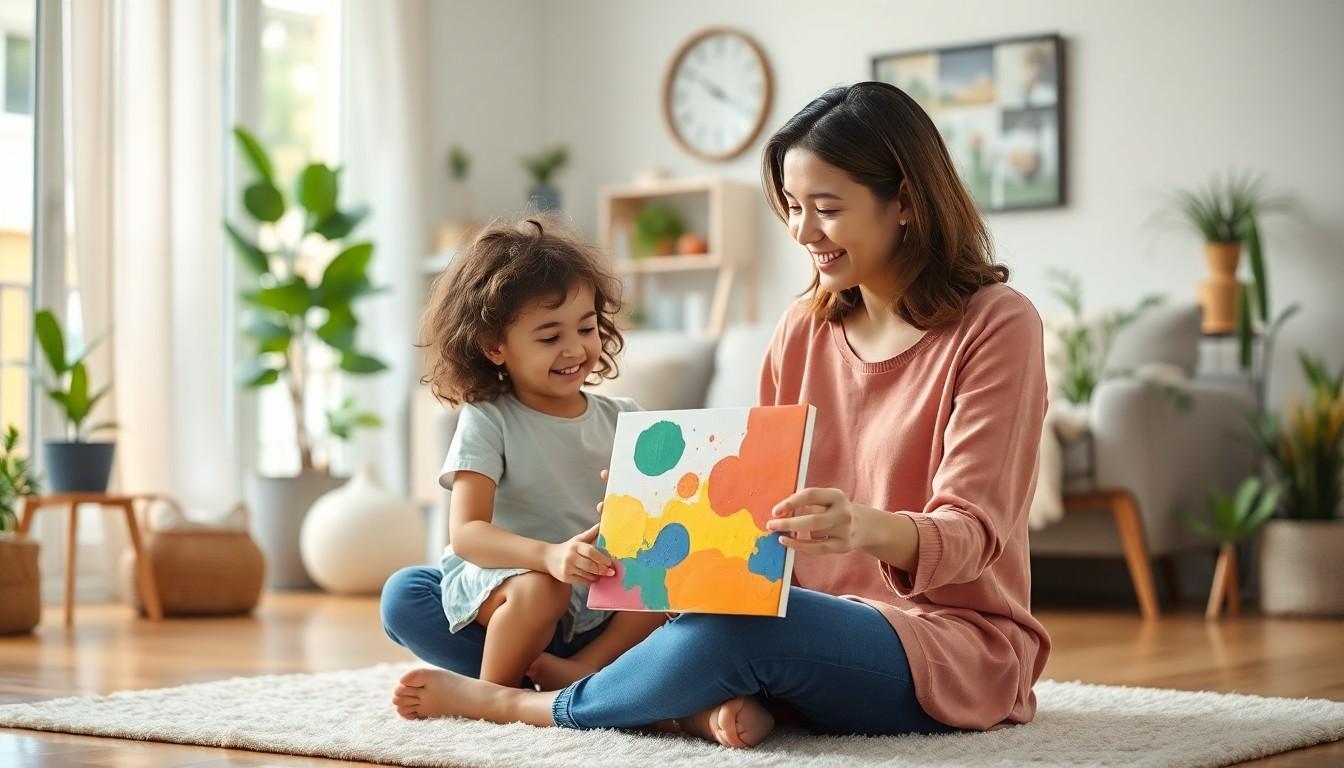Physical Address
304 North Cardinal St.
Dorchester Center, MA 02124
Physical Address
304 North Cardinal St.
Dorchester Center, MA 02124

In a world where tantrums can erupt like popcorn in a microwave, peaceful parenting might seem like a lofty goal. But what if it’s not just a dream? Imagine navigating the wild ride of parenthood with calmness and laughter instead of chaos and tears. With the right tips, it’s possible to turn those stormy moments into opportunities for connection and growth.
Peaceful parenting isn’t about being a pushover or ignoring the chaos; it’s about fostering a nurturing environment where kids can thrive. When parents learn to communicate effectively and embrace patience, they create a harmonious atmosphere that benefits everyone. Get ready to discover practical strategies that’ll help transform the daily grind into a joyful journey—because who said parenting can’t be fun?
Peaceful parenting fosters a nurturing environment for both parents and children. It combines patience, effective communication, and connection.
Peaceful parenting prioritizes understanding and empathy over punishing and criticizing. It emphasizes calm responses to children’s behavior and encourages parents to model emotional regulation. Parents create safe spaces for children to express feelings. This approach relies on building trust and open dialogue. When parents employ peaceful parenting, they cultivate a harmonious family environment.
Peaceful parenting enhances emotional intelligence in children. Children benefit from models of calm behavior and effective communication skills. This parenting style promotes resilience, enabling children to navigate difficulties. Reduced stress and anxiety occur for both parents and children in peaceful households. Improved relationships develop through mutual respect and understanding. Peaceful parenting not only strengthens family bonds but also cultivates a supportive community.

Peaceful parenting focuses on understanding children’s emotions and fostering healthy communication. These principles create a nurturing environment that benefits both parents and children.
Active listening involves fully engaging with what a child expresses. Parents should maintain eye contact and acknowledge feelings. Reflecting back what children say shows that their words matter. Silence can be integrated effectively, allowing kids to think and articulate their thoughts. Clarifying questions can also guide a deeper understanding of their emotions. This engagement builds trust and reinforces the connection between parent and child.
Empathy plays a crucial role in peaceful parenting by validating a child’s experiences. Recognizing and accepting their feelings creates a safe space for open expression. Parents should avoid judgment and instead offer support during challenging moments. Checking in with children often fosters emotional awareness. Demonstrating understanding helps build a strong foundation for a trusting relationship. Compassionate responses encourage kids to explore their feelings, ultimately leading to a more harmonious family dynamic.
Implementing practical tips for peaceful parenting creates a nurturing environment for children and parents alike. These strategies foster emotional growth and strengthen family bonds.
Establishing clear boundaries provides children with a sense of security. Define rules based on family values to guide behavior. Consistency in enforcing these boundaries reinforces expectations. Encourage discussions about the importance of these rules, which helps children understand their purpose. Allow flexibility for age-appropriate adjustments as children grow, ensuring they grasp the reasoning behind changes.
Creating a safe space for emotional expression is vital. Parents should invite children to share their feelings openly. Validate these emotions with active listening and empathic responses. By modeling how to express feelings, parents demonstrate healthy emotional outlets. Techniques like art or storytelling also provide alternative means for children to express complex emotions. Encouragement nurtures emotional intelligence and resilience, fostering deeper connections.
Integrating mindfulness into daily routines enhances emotional regulation. Simple practices like deep breathing or focused attention exercises help settle chaotic moments. Parents can join children in these activities, modeling calmness and awareness. Encourage short sessions of mindful observation, focusing on sounds or sensations, which cultivates present-moment awareness. Guided imagery or visualization can also be part of these practices, promoting relaxation and emotional balance.
Creating a calm and inviting home environment significantly contributes to peaceful parenting. Both parents and children benefit from spaces that promote relaxation and emotional well-being.
Designate areas in the home specifically for relaxation. Soft lighting and comfortable seating encourage tranquility. Incorporate calming colors in decor to create a serene atmosphere. Add elements that promote mindfulness, like plants or nature sounds. Arrange toys and books in an organized manner to reduce visual chaos. Use tools like scent diffusers with calming essential oils to enhance relaxation. Engaging children in the space helps them feel ownership, fostering connection to their environment.
Routines provide structure and stability, essential for fostering a peaceful home. Start each day with a consistent morning routine, which sets a positive tone. Incorporate shared family activities, such as meal preparation or reading time, to strengthen bonds. Use visual schedules to help children understand what to expect throughout the day. After-school rituals can provide a necessary transition period for kids, helping them unwind. Setting regular bedtime routines fosters better sleep for everyone, contributing to a more harmonious environment. The predictability of routines reduces anxiety and promotes cooperation.
Embracing peaceful parenting transforms challenges into opportunities for connection. By focusing on empathy and understanding, parents can create a nurturing environment that fosters emotional growth. This approach not only benefits children but also strengthens family bonds.
Implementing practical strategies like active listening and mindfulness leads to a more harmonious home. Establishing routines and safe spaces enhances emotional security, allowing children to express themselves freely. Ultimately, peaceful parenting cultivates resilience and emotional intelligence, paving the way for healthier relationships within the family and beyond.